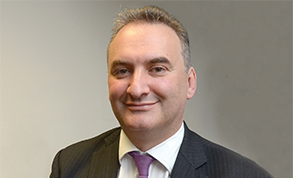News / Leaders defend five-year funding focus for workforce plan
The plan, published at the end of last week, promises to double the number of medical school places to 15,000 by 2031/32. In the same timescale, GP specialty training will be boosted by 50% to 6,000 and adult nursing training places will increase by 92% to nearly 38,000.
However, the government has so far committed just £2.4bn as the first step towards this goal, delivering a 27% expansion in training places by 2028/29. This first stage of training expansion will see, for example, medical school places increase by a third to 10,000 and 8,000 more adult nurses start training compared to current levels. (See HFMA summary of the NHS long-term workforce plan for further details of commitments.)
In an evidence session on access to urgent and emergency care, members of the Public Accounts Committee this week asked for details about the full costs of the plan over the 15-year period covered. NHS England chief executive Amanda Pritchard said: ‘The current government’s commitment has been to fully fund the first five years of that plan.’
Chris Wormald (pictured), permanent secretary at the Department underlined that this focus on just the initial period of the plan was in line with the normal spending review process. ‘In future periods, there are decisions for the government to take about what the total size of the NHS budget is, which will need to take account of the consequences of the plan. But those are future decisions for future spending reviews.’
He added: ‘The future budgets of the Department of Health and Social Care and the NHS beyond this spending review are obviously political decisions for the future.’
An increase in staff numbers will clearly have an impact on the overall pay bill. However, Sir Chris stressed that some aspects of the plan would be cost reducing. ‘If the plan is successful and we get retention levels up and we are less reliant on international recruitment and using fewer agency staff, and we are working in the kind of reformed way the plan sets out, there are savings there as well as costs. Government and Parliament will want to weigh the net effect of all that.’
Stephen Powis, the national medical director for England, explained that the new funds for training and education would be phased in. ‘It will require new medical schools and expansion of existing medical school places. That doesn’t happen overnight,’ he said. ‘It will require additional trainers and educational staff and that is why the £2.4bn will be loaded to the back end of those years.’
Related content
This forum will bring together national updates, topical issues, best practice examples and networking opportunities.
This conference will keep all those involved with NHS charities up to date with any changes to practices and procedures.